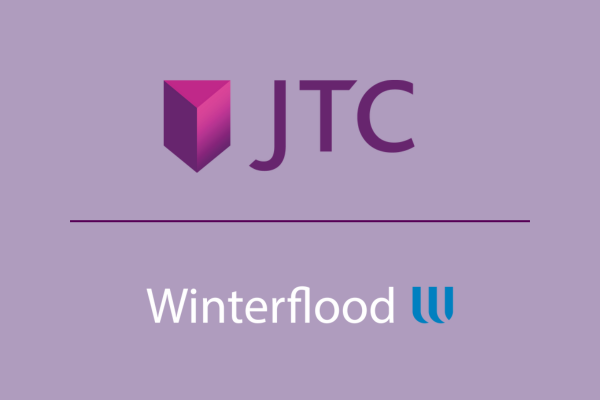How can a mutual fund be structured?
A mutual fund can be set up as either:
- a company, (governed by directors), with investors, (shareholders),
who purchase shares - a partnership, (governed by a general partner), with investors,
(partners), who acquire interests - a trust, (governed by a trustee), with investors, (beneficiaries),
who acquire units.
The choice is determined by you based on the wishes of your investors. However companies are the most common vehicle for investment funds.
Mutual funds can be either:
- open / closed ended
- master feeders
- multi-series.
An open ended structure issues shares, (sells to investors), and redeems shares, (buys back shares from investors), at the direction of a shareholder.
A closed ended structure is an investment scheme that does not give investors the right to redeem their shares. New shares are rarely issued, (capital calls or special subscription periods may be allowed). This structure is suitable for illiquid securities or long term strategies such as equities.
Master feeder structures are very common for funds that have a domestic (US) “feeder”, an offshore “feeder” and an offshore “master”. Typically the master fund holds the portfolio of funds and each feeder invests into the master.
Multi-series funds can be constructed as either an umbrella fund or a segregated portfolio company structure (SPCs). Both allow the opportunity to create multi-portfolio structures with segregation of assets and liabilities. In a SPC, however, there are no cross liabilities between the segregated portfolios. A multi-series umbrella fund offers no statutory protection for assets of one series from creditors of a different series.
What is a Cayman mutual fund?
The Mutual Funds Law of the Cayman Islands definition is summarised as follows:
A mutual fund is any company, trust or partnership either incorporated or established in the Cayman Islands, or if outside the Cayman Islands, managed from the Cayman Islands, which issues equity interest redeemable or repurchaseable at the option of the investor, the purpose of which is the pooling of investors’ funds with the aim of spreading investment risk and enabling investors to receive profits or gains from investments. A fund with one investor is not considered a fund.
Cayman Islands funds
Cayman is a popular offshore jurisdiction and is viewed to be the pre-eminent offshore fund jurisdiction. The Cayman Islands regulatory body is the Cayman Islands Monetary Authority (CIMA).
Fund structures that fall under the definition of a mutual fund, for the purposes of the Mutual Fund Law, should be registered or licenced with CIMA.
JTC Fund Services (Cayman) Ltd does not administer licenced funds.
Registration
A Cayman fund is required to register with CIMA unless it is:
- A fund that has 15 or less investors and those investors have the right to appoint or remove a director.
- A closed end fund.
Note a fund that is not required to be registered may still choose to be registered.
A non-registered fund is not required to have an annual audit.
Requirements
In order for a Cayman fund to register with CIMA, it will need to comply with the following requirements:
- payment of an up front and a recurring annual fee
- at least two directors who must be individuals (the directors do not need to be residents in Cayman)
- an auditor who is situated in Cayman (the audit does not need to be carried out in Cayman but the audit report has to be signed off by a Cayman auditor approved by CIMA, which will provide a letter of acknowledgement of duties)
- a minimum initial investment of US$100,000 or higher
- an Offering Memorandum
- a copy of the fund’s certificate of incorporation
- a letter from the Fund’s administrator consenting to act as administrator.
Share classes
A fund may issue different types of shares in different classes, series, and currencies or with different obligations.
Typically there are two types of shares:
- those that have voting rights
- those that have no voting rights.
The fund needs to have at least one class of shares with voting rights. Usually if there are two classes of shares the voting shares do not participate in the profits of the fund whilst the non-voting shares participate in the profits, (participating shares).
Typically the voting shares are given to the fund’s founder or manager hence they are frequently called Founder Shares or Management Shares. The participating shares are then issued to investors. Voting shares give the holder control of the fund. It is useful in instances where Articles have to be changed and when it may be difficult to organise a vote of all shareholders and it also assists when the fund is being liquidated as it allows all investors to be repaid and the voting shareholder to remain to assist in the final liquidation.
Please note that any “material” changes in a fund, such as increase in fee structures, reducing the NAV frequency or changes in the investment guidelines are to be approved by the participating shareholders with the percentage needed for passage varying depending on the fund’s articles of incorporation.
Authorised share capital
Typically, a fund launched by JTC Fund Services (Cayman) Ltd. will be authorised to issue up to US$50,000 in shares, (this number corresponds to the highest value in the lowest fee bracket for statutory fees).
Typically the share capital is represented by 100 Voting shares with a par value of USD1.00 per share and 4,990,000 non-voting participating shares with a par value of USD0.01 each. If the shares are issued at US$1,000 per share then the fund can raise US$4,990,000,000 in capital without needing to increase its shares in issue.
Subscription frequency
The frequency in which investors may buy shares is dependent on the type of investments held by the fund and the size of the fund.
In general the more liquid in the underlying security, the more frequently shares may be offered. If the fund has listed equities then these can be bought daily and valued daily so the fund could have a daily valuation day on which shares are traded. If the underlying investment is another fund that only values / offer shares quarterly, then the fund should also only allow quarterly trading. Most funds offer monthly subscriptions / redemptions with only large and liquid funds offering weekly valuations.
Redemption frequency
The same applies to how often the fund allows shareholders to sell their funds. To discourage redemptions in the early years of operation the fund may either:
- charge redemption fees that are reduced over time
- not allow redemptions for the first year of operation.
The general rule is to match the liquidity of the shares in the fund with the liquidity of the underlying investments plus a few days to make sure that redemption orders can be put in place, (this is especially important for fund of funds).
As most of the shareholders in the funds, for which we provide administration services, are nominee banks representing one or more underlying investors, it is not possible for a fund to implement a policy whereby the underlying investors are not allowed to redeem for the first 12 months of their investment. This would be impossible for the administrator to monitor as the fund only knows the bank as a nominee shareholder and does not know the underlying individual investors.
Shares will be issued to investors who are financial institutions operating in Schedule 3 countries, (primarily international recognised and approved banks). Investors from certain countries who have not been approved by FATF, (Financial Action Task Force), are also subject to restrictions. No residents of the Cayman Islands can purchase Cayman funds and US investors are permitted subject to proper verification with US counsel (Blue Sky Law).
Fees
A fund will need to enter into a contract and pay various service providers. These may include:
- administrator
- investment manager
- investment advisor
- directors
- government agencies
- auditors
- lawyers
The fee charged will vary between a set fee and a fee based on time spent. In the case of the administrator, investment manager and investment advisor, these fees will be based on a percentage of the net assets of the fund. In the case of the administrator there will be a minimum annual charge. The Investment Manager and / or Investment Advisor may also charge a performance fee. Charges for directors and government agencies are usually a set fee and fees for auditors and lawyers will be based on time spent.
Audit and administration fees vary depending on the number of positions, listed versus unlisted instruments, portfolio turnover, number of shareholders as well as valuation frequency. JTC Fund Services (Cayman) Ltd. does not approve any private equity structures in which an investment manager will be paid a performance fee based on unrealised gains. For a private equity fund, an investment manager can be paid a performance fee either upon the liquidation of the fund or after disposing of an individual investment both based on realised gains.
Cash forecasting
For closed ended funds with no capital funding after the initial offer of shares, it is important for the investment manager to estimate the cash flow projections for the life of the fund in order to pay for the fund’s on-going expenses.
Reporting
The administrator will publish the Net Asset Value, (NAV), per Share, (share price), to various pricing publications including Bloomberg, Telekurs. These can often be accessed using the security identifiers specific for each fund. Most Funds will issue an ISIN, CUSIP and Valoren number.
ISIN – it is the International Securities Identification Number that uniquely identifies a security. It consists of a 12 character alpha-numerical code.
CUSIP – the abbreviation stands for Committee on Uniform Securities Identification Procedures. It consists of a 9 character alpha-numerical code.
Valoren – it is a 7 digit number issued in Switzerland very similar to the two identifiers above.
These three identifiers primarily function to facilitate clearing and settlement within financial institutions.
All investment managers / advisors must provide shareholders with a report discussing the progress of the fund towards reaching its objectives, its performance and a financial outlook. This report may be made available on the investment manager’s website, (accessed with a password), or circulated in hard copy or by email. Such reporting should take place annually at a minimum.
Auditors will provide audited financial statements annually typically within 180 days after year end. These will be sent to all registered shareholders.
Service providers
The fund will enter into an Administration Agreement with JTC Fund Services (Cayman) Ltd.
Duties of the Administrator as set out in the Administration Agreement.
(a) keeping the Register of Shareholders in the Cayman Islands or such other jurisdiction as may be agreed by the parties from time to time;
(b) arranging for the allotment, issue, transfer, redemption and/or purchase of Shares, including processing applications for Shares, transfer instructions and redemption requests in accordance with the Articles, the Confidential Offering Memorandum and the instructions of the Fund;
(c) enter on the Register of Shareholders every allotment, issue, transfer, redemption and/or purchase of Shares;
(d) make the Register of Shareholders available for inspection as required by law or the Articles or as directed by the Fund and supply copies of the Register of Shareholders. The Administrator may charge such fee as it may reasonably determine for supplying copies of the Register of Shareholders provided that such fee does not exceed the amount permitted by law or by the Articles;
(e) confirming the receipt of subscription monies in connection with subscription for the Shares, disbursing payments in connection with redemption of the Shares and disbursing payments of dividends, if any, declared by the Fund’s Director;
(f) disbursing payments of the Director’s and officers’ fees and expenses, legal and accounting fees and expenses, investment management, administrative fees and expenses, taxes, government license and filing fees and all other costs and expenses incurred for the account of the Fund (other than transaction costs and related expenses arising in connection with the Fund’s investment program);
(g) dealing with and replying to all correspondence and other communications addressed to the Fund, whether in relation to the subscription, purchase, transfer or redemption of Shares in the Fund or otherwise PROVIDED THAT in the event of any dispute in connection with the issue, ownership, redemption or otherwise of any Shares in the Fund the matter shall be referred to the Director who shall take such action as may reasonable be required;
(h) sending to shareholders of the Fund and to the auditors, such notices, reports, financial statements and other written material as may be requested from time to time;
(i) following instructions given by the Fund, despatch circulars, notices of meetings, reports, financial statements and other written material to every person entitled to receive them;
(j) maintaining as necessary such bank, brokerage, custodian and other accounts as may be deemed suitable or advisable;
(k) computing the Net Asset Value of the Fund and the Net Asset Value per Share of the Fund in accordance with its Articles and the Confidential Offering Memorandum but based solely on information provided to the Administrator by the custodian/banker of the Fund’s assets or agreed upon by the Investment Manager;
(l) preparing and maintaining all customary accounting and financial books and records in appropriate form and in sufficient detail to support an independent audit of the Fund; and
(m) FATCA / CRS services provided that includes FATCA registration and obtaining a GIIN identifier.
The Administrator shall not be responsible for ensuring compliance with the Investment Objective and Strategies of the Fund as set out in the Confidential Offering Memorandum.
Duties of a Director
a) The Directors shall be entitled to contract with the Fund and any other related party for the provision of directorship services.
b) The Directors of the Fund have overall authority over, and responsibility for, the operations and management of the Fund.
c) The Directors shall delegate the investment management function to the Investment Manager and the administration of the Fund to the Administrator on the terms of the Investment Management Agreement and the Administrative Services Agreement respectively.
Duties of the Investment Manager / Advisor
Typically the difference between the Manager and the Advisor would be that the Advisor provides investment advice either to the Investment Manager of the Directors but has no control over the assets of the Fund. An Investment Manager will typically have discretionary power over the Fund’s assets.
The duties below are specific to an Investment Manager.
a) Have discretionary power in respect to the investment and reinvestment of the cash, securities and other property comprising the assets of the Fund so as to achieve the investment objective and strategies of the Fund.
b) Subject to the provisions of the Investment Management Agreement, the Investment Manager shall provide a continuous investment program for the Fund and, in its discretion, determine the composition of the assets of the Fund.
Without limiting the generality of the foregoing, the Investment Manager shall:
(i) seek out, evaluate and make investments on behalf of the Fund;
(ii) continuously monitor existing investments of the Fund;
(iii) represent the Fund towards any companies in which the Fund is invested;
(iv) conduct on behalf of the Fund, negotiations with respect to potential investments and the structuring of potential investments;
(v) obtain for the Fund and its agents from time to time valuations of such investments as may be necessary;
(vi) provided always that it is kept fully informed of fees, subscriptions and redemption requests received by the Fund determine the manner in which monies required for the payment of such fees and redemptions should be realised;
(vii) prepare material for inclusion in annual or other reports of the Fund whenever the Fund may reasonably require;
(viii) provide the Fund and its registered shareholders with periodic updates on performance; and
(ix) assist the Fund as necessary and its Director and Administrator in particular reviewing the calculation of the Net Asset Value per Share forwarded by the Administrator and confirming its accuracy.
Notwithstanding any other provision set forth herein, the Investment Manager shall have no right to withdraw or possess any funds or securities from any account of the Fund except to transfer to another account held in the name of the Fund or to a dealer or counterparty of the Fund.
Other service providers
a) Custodian/Banker – The fund will enter into various agreements with the banker or custodian of choice for the provision of services.
b) Auditor – if a Fund is registered with CIMA then the Fund needs to appoint an auditor approved by CIMA. The audit may be undertaken outside of Cayman however a Cayman firm needs to sign the audit report. The fund will sign an engagement letter each year to appoint the auditor.
c) Lawyers – from time to time the fund may need the services of a lawyer.
JTC Fund Services (Cayman) Ltd. works closely with the leading legal firms in the Cayman Islands. Firms will review all agreements and the Offering Memorandum prior to the launch of the fund. Their fees for this service are included in the “Set-up Fees” charged by JTC Fund Services (Cayman) Ltd.
Key contact
Stay Connected
Stay up to date with expert insights, latest updates and exclusive content.
Discover more
Stay informed with JTC’s latest news, reports, thought leadership, and industry insights.
Let’s Bring Your Vision to Life
From 2,300 employee owners to 14,000+ clients, our journey is marked by stability and success.

















